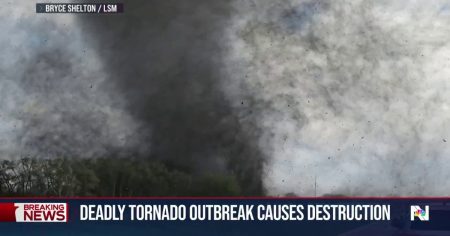Colombia has decided to halt electricity exports to Ecuador due to a severe drought caused by the El Niño weather phenomenon, leading to low water levels in reservoirs used for hydropower generation. Both countries rely heavily on hydroelectric plants to meet energy needs, but the water shortage has forced Colombia to ration water in areas like Bogota and reduce electricity exports. Ecuador declared an energy emergency as its president, Daniel Noboa, acknowledged the critical state of the country’s energy sector.
Colombia’s electricity operator XM reported that reservoir levels were at 29.8 percent of capacity, prompting the government to slow down electricity exports to Ecuador. In response, Ecuador’s Minister of Energy, Andrea Arrobo Peña, announced power outages and rationing to address the energy shortages. She called on Ecuadorians to reduce energy consumption during this critical time, emphasizing the importance of conserving water and electricity. However, President Noboa later announced the resignation of Minister Peña and hinted at the presence of corruption and sabotage in the energy sector.
President Noboa initiated an investigation into potential sabotage in power plants and promised to take legal action against those involved in corruption. He criticized the lack of execution and firmness in combating corruption in the energy sector, emphasizing the need for accountability and transparency. Climate change expert Camilo Prieto warned that the growing energy consumption in countries like Ecuador and Colombia leaves them vulnerable to extreme weather patterns linked to El Niño. He stressed the importance of diversifying the energy mix to reduce reliance on hydropower and increase resilience to future droughts.
The current drought in Colombia and Ecuador is not as severe as past droughts, but the increasing demand for energy in both countries highlights the need for sustainable energy policies. Prieto emphasized the importance of diversifying the energy mix to reduce vulnerability to climate-related disasters and ensure energy security for the population. The situation in both countries underscores the interconnectedness of climate change, energy production, and water resources. Collaboration and strategic planning are crucial to addressing the challenges posed by extreme weather events and ensuring a stable and reliable energy supply for the future.














